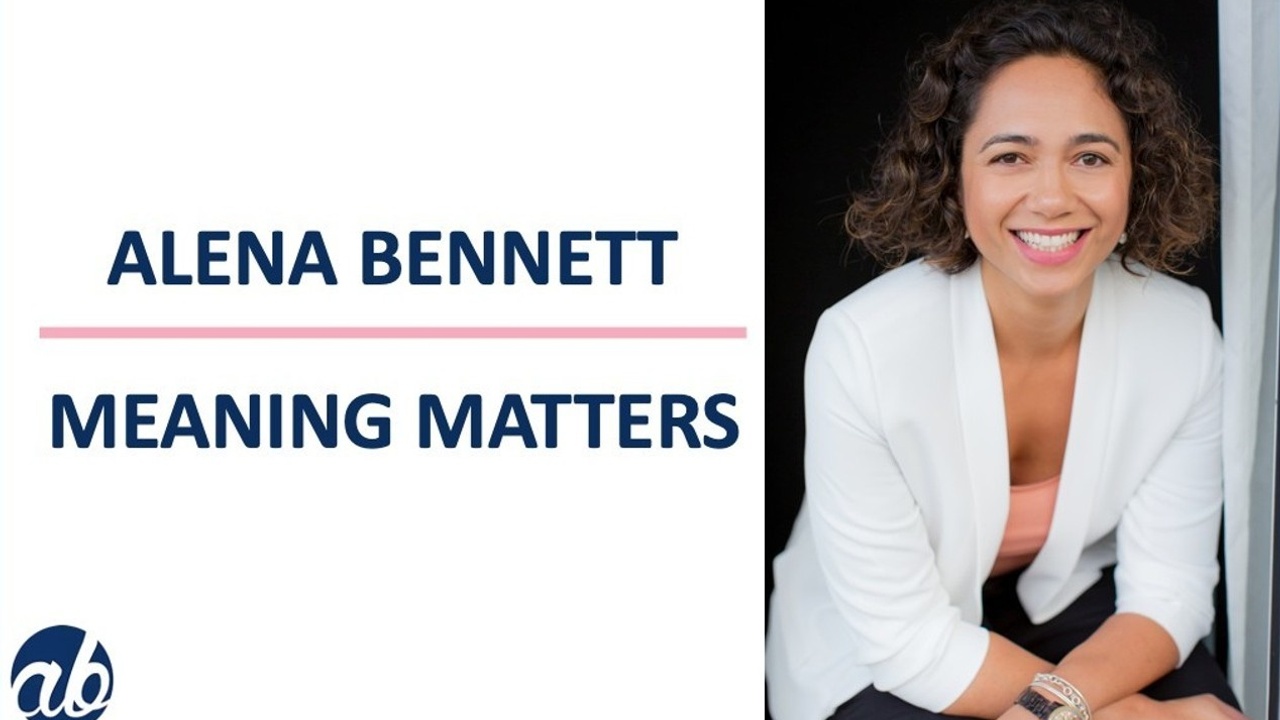Just like in AFL, where the first few plays off the opening bounce gives you an idea of which team's setting the tone of the game, first impressions count for CFOs. Because in today's workplace, if you don't connect and engage with the people you're talking with immediately, they've tuned out to their phone, email or Team's messages.
5 tips for CFOs to make their first impressions count
1. The first 5 mins set the tone: When we prepare for our meetings and our conversations, we typically focus on the content of the conversation. We don't necessarily think about how the beginning of the meeting will go. Subconsciously we make a few assumptions about the beginning – people will arrive late, you'll talk about the weather or the weekend, but we aren't often intentional about the start of the meeting. Those first 5 minutes of welcome and framing are often what sets the tone for a successful meeting.
2. Leave yourself at the door: Planning and preparation is critical for any conversation worth having. BUT, one of the reasons it's so important is that it allows us to let go of ourselves and egos so we can be fully present in the conversation. My clients often tell me the best leaders they've ever had are those that made them feel they were the only ones in the room. With the skill of executive presence one of the 12 key skills of a CFO of the future, your attention and presence in a conversation is critical.
3. Unplan your plans: The other reason you need to thoroughly prepare for your conversations is that you need to be able listen fully through the lens of curiosity and a willingness to learn. Which means that you need to be agile and ready to pivot if it would benefit the conversation. You can't do this if you're holding on to you're your rigid plan of thoughts, ideas and statements you want to make. CFOs today need to be armed to be flexible.
4. Be clean: With ill intent, influence can be a form of manipulation. Don't be sneaky – share your intentions up front. No 'bad news' sandwiches allowed, especially when it comes to feedback! CFOs are of high integrity and we can't undermine our reputation because we too scared to be clean and clear about our intentions and messages.
5. Buy your stakeholders' shoes: We don't need to just walk in their shoes, we need to genuinely understand what it's like to walk in someone our stakeholders' shoes. Empathy mapping is a great start – we do a lot of that in the CFO Boardroom – but it's also about creating spaces where capability can meet intimacy. Those moments where the guards drop, and the vulnerability can enter. The first 30 seconds of a meeting, especially when you're waiting on others to arrive, can be brilliant for that.
First impressions DO count. Just like the word 'vase' primes you....
If it's a high stakes meeting, you set the tone that this is important.
If this is an interview, you move it from an interrogation to an influencing conversation.
If you're having a difficult conversation, you set a safe environment.
If you're in an influencing conversation, you get to create alignment early.
How do CFOs get it right?
There are 3 things that you can do to make your first impressions count:
1. State: Make sure you're in the right energetic state for said conversation so you're not carrying any unresourceful energy, assumptions or baggage into your conversation. You need to be at your best: if this is a rested you, first thing in the morning, having run 5kms, then do that.
2. Script: Choose your language carefully. The words you choose for one conversation may not be appropriate for another – even if the topic is the same! Clarity is key and when we aren't intentional about our language, expectations quickly diverge.
3. Sequence: Know where you are in the conversation. What's your pre-existing relationship with the other person – how well do you know them? What else is going on in their worlds that is important for you to understand about their state of mind, opinions and feelings? How will you pace and sequence the conversation itself?
First impressions are a critical part of engagement for CFOs, because unlike footy teams, most of us don't have die-hard fans who will wait out 80 minutes for a good outcome!



